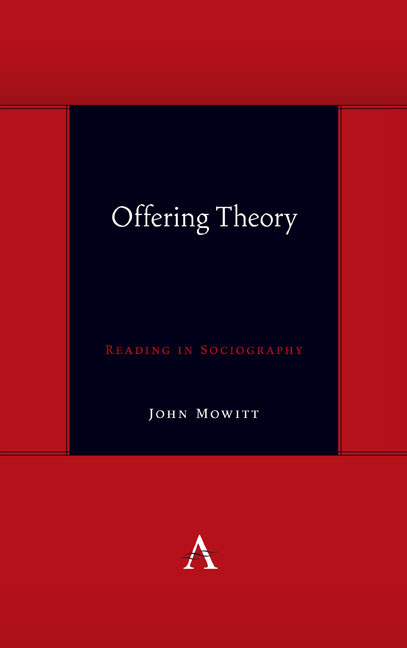Book contents
- Frontmatter
- Dedication
- Contents
- Acknowledgments
- The Pretext
- Introduction: Theory in Limbo
- 1 Queer Resistance: Foucault and the Unnamable
- 2 Stumbling on Analysis: Psychoanalysis and Everyday Life
- 3 Strangers in Analysis: Nationalism and the Talking Cure
- 4 “Jamming”
- 5 WWJD?
- 6 What Said Said
- 7 Apart from Theory
- 8 Conclusion: Theory Is Out There
- References
- Index
- Frontmatter
- Dedication
- Contents
- Acknowledgments
- The Pretext
- Introduction: Theory in Limbo
- 1 Queer Resistance: Foucault and the Unnamable
- 2 Stumbling on Analysis: Psychoanalysis and Everyday Life
- 3 Strangers in Analysis: Nationalism and the Talking Cure
- 4 “Jamming”
- 5 WWJD?
- 6 What Said Said
- 7 Apart from Theory
- 8 Conclusion: Theory Is Out There
- References
- Index
Summary
This study traces various iterations of the question: when or where is Theory today? Its aim is not to avoid the question, “what is Theory?,” but to subordinate that question to the prior one. At stake in this subordination is the conviction that the “essential” question, the “what” question, leads too quickly to an archival impasse where movements, debates, national traditions, figures, births, deaths and so on impose an order on Theory that reduces it largely to the intellectual property of publishers and universities. And not just any publishers and universities, but far too typically ones in what have come to be called the North and the West, both designations that Theory now includes within the modes of its own self- doubt. Here, and the problem is a familiar one, Theory immediately undergoes a metamorphosis when confronted with the dilemma of application, whether understood methodologically (can Theory x be applied to object y, and to what effect?) or politically (should Theory from intellectual heritage x be applied to objects from another?). These are not false problems, it is just that the power of their falsity is too limited to be especially generative. They make the “when or the where” of Theory seem less interesting than they might otherwise be by, in effect, folding a single when and a single where into what Theory is. Or, as is more often heard today, what Theory was.
This invocation of the grammatical distinction between the past and the present points to something that will matter in what follows. Hovering, like a “third ear,” above or behind the “when or where” of Theory is a proposition about context. More particularly, the question “when is Theory?” reads like a historical question, just as “where is Theory?” reads like a social or cultural question. History, society, culture are all ways to think what context designates in the protocols of critical analysis. That said, at issue here is not a banal “contextualization” of Theory (others have scorched this earth), and this for two reasons.
- Type
- Chapter
- Information
- Offering TheoryReading in Sociography, pp. xi - xivPublisher: Anthem PressPrint publication year: 2020



